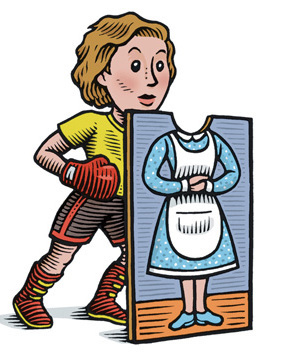 loading
loading
FindingsThe accidental senator Gregory NemecView full image
As a graduate student, Victoria Brescoll '06PhD spent a year working in the United States Senate. During that time, she watched several female politicians give their stump speeches, and she began to notice a curious pattern: "There was usually some reason why they didn't really intend to be there." As an example, Brescoll points to Washington senator Patty Murray's online biography: "Patty Murray never planned to enter politics." Now, 18 years later, The Oregonian newspaper has dubbed her "the Northwest's most powerful politician." A quirk of fate? Or are the two statements related? New research by Brescoll, now an assistant professor of organizational behavior at the School of Management, suggests it might be the latter. In a study, Brescoll found that women who are perceived as power-hungry—even if they're after a position that is, by its very nature, powerful—are less likely to get elected than men who express the same desire. For the study, Brescoll and postdoctoral associate Tyler Okimoto had participants read identical biographies of two fake senators, one male and one female. Some of the bios described the senators as "one of the most ambitious politicians" in their state, while others did not. When asked, people were less likely to vote for the ambitious woman but more likely to vote for the ambitious man. Why? The study found that voters dislike women who they think defy the stereotype of women as communal: sensitive, warm, and caring. Such dislike causes backlash—and a dearth of votes. Call it the Hillary Clinton Effect. Ask people why they won't vote for the woman whose name is so often paired with the word ambitious, and what you'll hear, says Brescoll, is a gut reaction—like "Ugh, ugh. I just don't want to be around her." So what's a power-hungry female wannabe politician to do? Some take the Patty Murray approach, emphasizing that they're not "career politicians," Brescoll says. Others, such as Sarah Palin, take it a step further and brand themselves "mama grizzlies." "The mama part is the warmth. Everybody loves mothers," Brescoll says. "But they're also grizzlies: fierce and competitive and competent. It's an interesting and smart way to sell women politicians."
The comment period has expired.
|
|